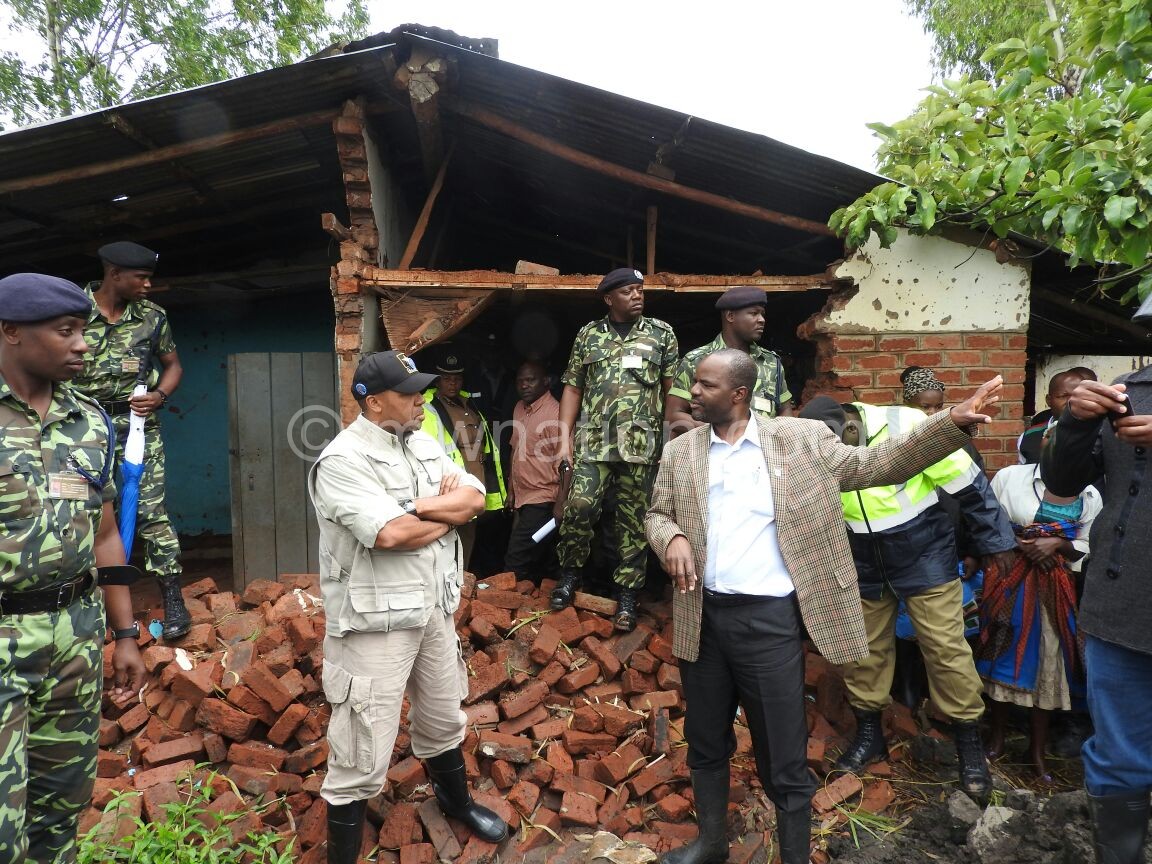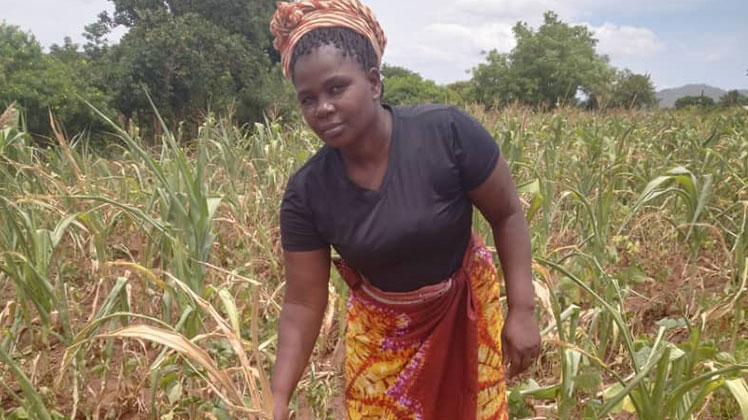Rains revive memories of April tragedy
For Constance Banda, sounds of raindrops on the rooftop evoke bitter memories of homes crashing to the ground and cries of people buried in the rubble. Like many Mzuzu residents, the woman who lives in Masasa, a slum with houses perching on steep slopes where six people were killed and thousands displaced when torrential rains battered the northern city in April, is still haunted.

When it rained again two weeks ago, it was no time to dose off.
“I didn’t sleep all night long. I imagined the disaster happening again,” she says.
The tragedy, which killed seven people and displaced almost 8 000 in the city, keeps replaying in her mind.
Her family lost five houses in the worst hit slum, but she remembers with grief the death of two children in the neighbourhood.
“We are not safe here. Anything can happen,” she says.
The survivors may have left evacuation camps, but the city council’s guarantees to relocate them from disaster-prone areas of Masasa, Zolozolo, Chibavi, Chibanja, Ching’ambo and Mchengautuba remains a promise broken.
They remain at risk of suffering another impoverishing disaster in the wetlands, waterways and steep slopes where President Peter Mutharika and his vice Saulos Chilima made a bold statement: Government must do something about the perilous settlements because we will be back here next rainy seasons if nothing happens.
Banda and her husband have returned to their compound where only two houses survived.
“I didn’t have anywhere to go. Government and the city council have not provided land for those willing to relocate,” she says.
The Bandas migrated from Nkhata Bay in 2004 in search of employment. The family settled at Masasa in 2007 when her husband was working as a guard.
By last year, the low-income family owned seven low-cost houses which used to generate K75 000 a month.
But the empire crumbled in April, leaving one house fetching K10 000 a month.
Since that torrential month, people have been unwilling to occupy the house even though she has almost halved the rentals.
“After the disaster, many tenants who were affected moved away from Masasa. Landlords are still here, relying on tenants who are new in the township,” she says.
Some houses still remain in ruins almost eight months after the tragedy. They look abandoned. Not many have been renovated.
In the wetlands of Chibavi, residents have come together to dig trenches for drainage. The residents have almost given up on the promised relocation, they say.
The situation is no different in Karonga, Nkhata Bay, Rumphi, Nsanje and Chikwawa where thousands of Malawians are at risk of rain-aided disasters resulting from El Nino weather conditions in southern Africa.
According to the Department of Climate Change and Meteorological Services, the country is expected to experience floods emanating from La Nina.
Recent forecasts by the department point to a high probability of high rainfall amounts associated with floods.
With such predictions, Banda says: “We need a better place. The rains have brought fear and sad memories of the past. We need to be freed from this traumatic condition.”
At Mzuzu City Council, director of administration Victor Masina says a process is underway to register those who need to relocate to safer places identified by the council.
He indicated that the council is facing resistance from the residents.
“Some say they can’t leave their forefathers’ land. Others say they will move only if we give them resources for construction of new houses at the site. But the council doesn’t have money. All we are saying is that we have free land. Those who are ready to relocate should do so to avoid a repeat of the disaster,” Masina says.
He admits that the council has been late to embark on the relocation programme.
“We are late because for us to acquire land has been a long process. The city council is not the immediate landlord of land in the city. We acquire it from the Ministry of Lands, Housing and Urban Development and it takes a long process. So, we cannot blame anybody because there are formalities that are followed,” he says.
The Department of Disaster Management Affairs (Dodma) principal mitigation officer Veronica Mhango says preparedness for any eventuality is at an advanced stage
The department has set up emergency operation centres in Mzuzu, Blantyre and Lilongwe to coordinate disaster response, she says.
Dodma has also prepositioned search-and-rescue teams in disaster hotspots of Chikwawa, Nsanje and Phalombe.
“We have also prepositioned food and non-food items in our regional warehouses to enable us respond in good time, ideally within 48 hours,” she said.
Lilongwe University of Agriculture and Natural Resources (Luanar) atmospheric sciences and climatology lecturer Abel Chiwatakwenda says government and the locals need to heed early warning messages as a first step in averting disasters.
He says: “Government has put in place mechanisms and institutions to look at preparedness and response in times of disaster. But we need to know as well that a disaster is something that nobody can tell when it will take place. So, sometimes we are overtaken by its abrupt nature. Relocating those in prone areas could be the first step in averting disasters.”





